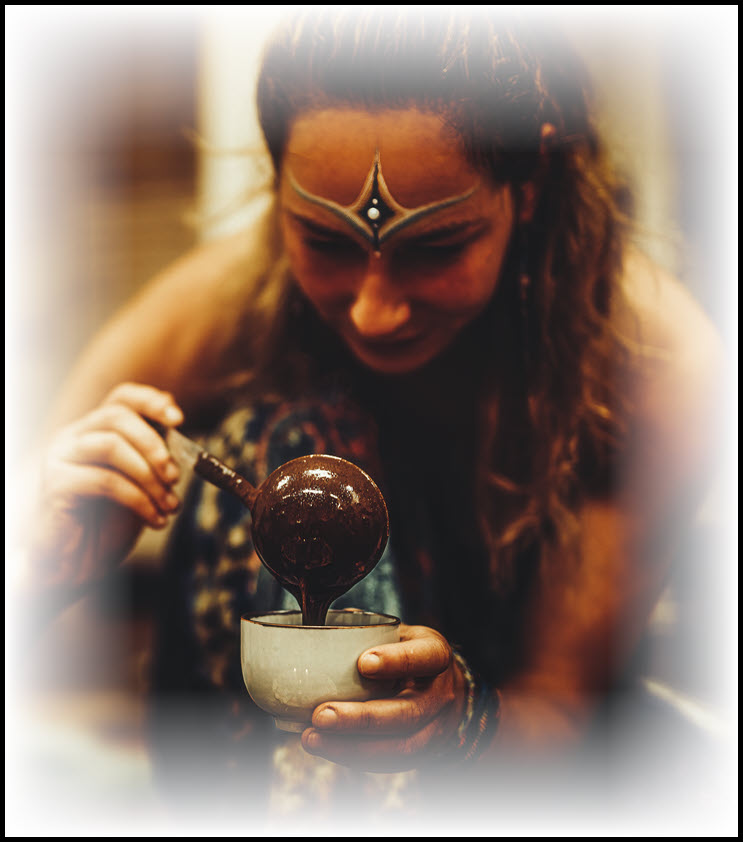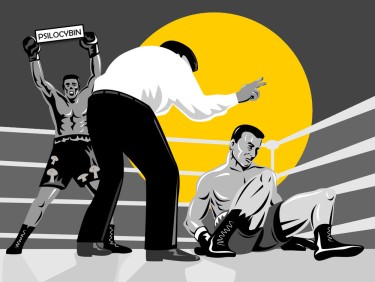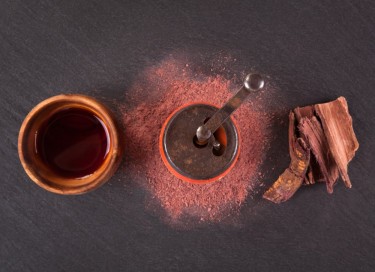
An Ayahuasca Weekend to Treat Depression?
Despite being illegal and the media and politicians tend to disparage their use, psychedelics have been shown to have transformative effects on people suffering from mental health issues such as anxiety and depression. Nonetheless, drug use in general is a strong predictor of mental health problems, and the line between medical use and recreational use is often blurred.
What is ayahuasca?
It is a psychedelic Amazonian drink used in healing rituals and in the dominant syncretic religions around the world, particularly in South America. Until recently, large-scale research was lacking, despite its widespread use in different contexts and growing global interest.
The properties of this medicinal drink come from two plants. Psychotria viridis, a shrub whose leaves contain the hallucinogenic chemical DMT, is cooked with Banisteriopsis caapi, a vine that snakes its way up to the treetops and across riverbanks in the Amazon basin.
Beginning in the 1930s, religions in Brazil were born around the use of ayahuasca as a sacrament. Ayahuasca rituals are common in cities across Brazil and around the world.
After the country’s Federal Drug Administration found that “members of religious groups” had experienced “extraordinary” benefits from its use, ayahuasca was legalized for religious use in Brazil in 1987. Ayahuasca users report feeling comfortable with themselves, God and the universe.
A Study of Ayahuasca
A study conducted at the Federal University of Rio Grande do Norte in Brazil included 218 patients suffering from depression. Twenty-nine of the patients were selected because they suffered from depression that was treatment-resistant and had no history of psychotic illness, such as schizophrenia, which ayahuasca can aggravate.
The 29 people were randomly assigned to a single treatment session in which they received either a placebo substance to drink or ayahuasca. The placebo was a bitter, brownish, sour-tasting liquid made from citric acid, water, caramel coloring, and yeast. Two common side effects of ayahuasca, nausea and vomiting, have been reproduced by zinc sulfate.
The study took place in a hospital room designed to look like a comfortable and quiet living room.
The first symptoms of ayahuasca last about four hours and include dream-like imagery, vomiting, and intense thinking. During this time, the participants listened to two customized playlists, one with instrumental music and the other with songs sung in Portuguese.
The patients were observed by members of two teams who provided support to those who were frightened during this harrowing physical and emotional experience. Significant improvement was seen in 50% of patients after one day, including improved mood and reduced anxiety.
After an additional week, 64% of patients given ayahuasca still felt their depression had subsided. Only 27% of those who received the placebo substance showed such results.
Building on previous knowledge
Our findings support clinical research on the antidepressant properties of ayahuasca conducted in Brazil in 2015.
The one from Dr. Research led by Jaime Hallak of the University of São Paulo also discovered that a single ayahuasca session had an immediate antidepressant effect. All 17 participants showed that symptoms of depression decreased in the early hours after taking ayahuasca. The result persisted for 21 days.
This research received considerable attention from scientists. However, because there was no control group of patients receiving a placebo drug, the research’s promising results were limited.
In clinical trials, up to 45 percent of patients taking a placebo reported significant gains. Because of the high placebo effect in depression, several experts have questioned whether antidepressants actually work.
From religion to science
The two studies, although preliminary, add to a growing body of evidence that psychedelic drugs like LSD, ayahuasca, and mushrooms help people with difficult-to-treat depression.
However, since these drugs are banned in many countries, including the United States, it has been difficult to assess their therapeutic utility. Even in Brazil, the use of ayahuasca as an antidepressant is still a marginal and unregulated practice.
A Brazilian blogger named Leon found the drug while researching online. Leon chose to participate in an ayahuasca ritual at the Santo Daime Church in Rio de Janeiro, one of the many Brazilian churches that use ayahuasca as a sacrament to find solutions to his intractable condition.
Although the religion does not track their membership, the Uniao do Vegetal; a similar belief, is said to have around 19,000 followers around the world.
Many religious organizations in America are reaping traditional traditions centered on natural psychedelics, and these are among them. They believe that psychedelic plants like ayahuasca, peyote or psilocybin open people’s minds to spiritual realms and profound experiences.
As researchers in the United States, Brazil, Canada and beyond begin meticulous medical evaluations of these substances, this knowledge that was once considered spiritual is now being interpreted in scientific terms.
The therapeutic power of the psychedelic experience
The Brazilian blogger said on his blog that he sometimes conjured up visions and illusionary scenarios that gave him a glimpse into the context of his life. At other times he got a strong sense of manifestation of inner divinity and a sense of bliss.
The Hallucinogen Rating Scale, which helps convert these indescribable sensations into numbers, was used by study participants. People who drank ayahuasca performed much better on the questionnaire than those who drank a placebo.
The people who reported the most comprehensive physical, auditory, and visual effects during their ayahuasca trip had the most notable benefits in relieving depression after seven days.
bottom line
Ayahuasca should not be used as a remedy or medicinal. Psychedelic experiences can prove too emotionally and physically taxing for some individuals to use frequently as a treatment. Some regular ayahuasca users still suffer from depression. But as research shows, the sacred Amazonian plant has the ability to be used effectively and safely to treat even the most difficult-to-treat depression.
Ayahuasca drinkers in real-world scenarios saw significant improvements in their emotional symptoms in this research review. There is no apparent evidence that long-term use of ayahuasca can have any harmful effects on mental health.
PSYCHEDELICS FOR DEPRESSION, READ THIS…

BIG WINNING FOR PSILOCYBIN IN THE BIGGEST DEPRESSION STUDY EVER!
OR..

AYAHUASCA WEEKEND – AS I EXPERIENCED MY FIRST TIME!

Post a comment: